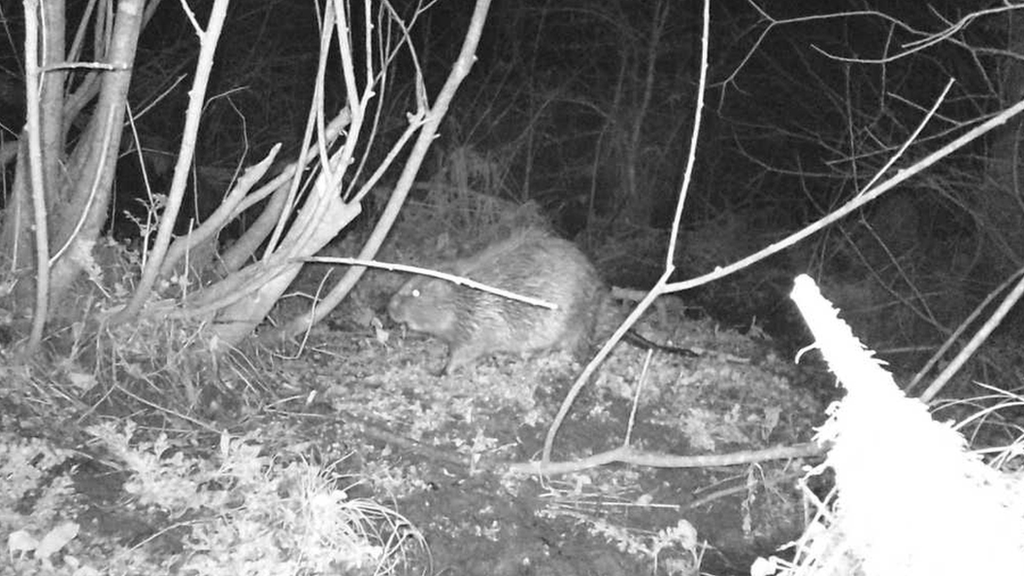Beavers 'thrived and improved' Essex landscape
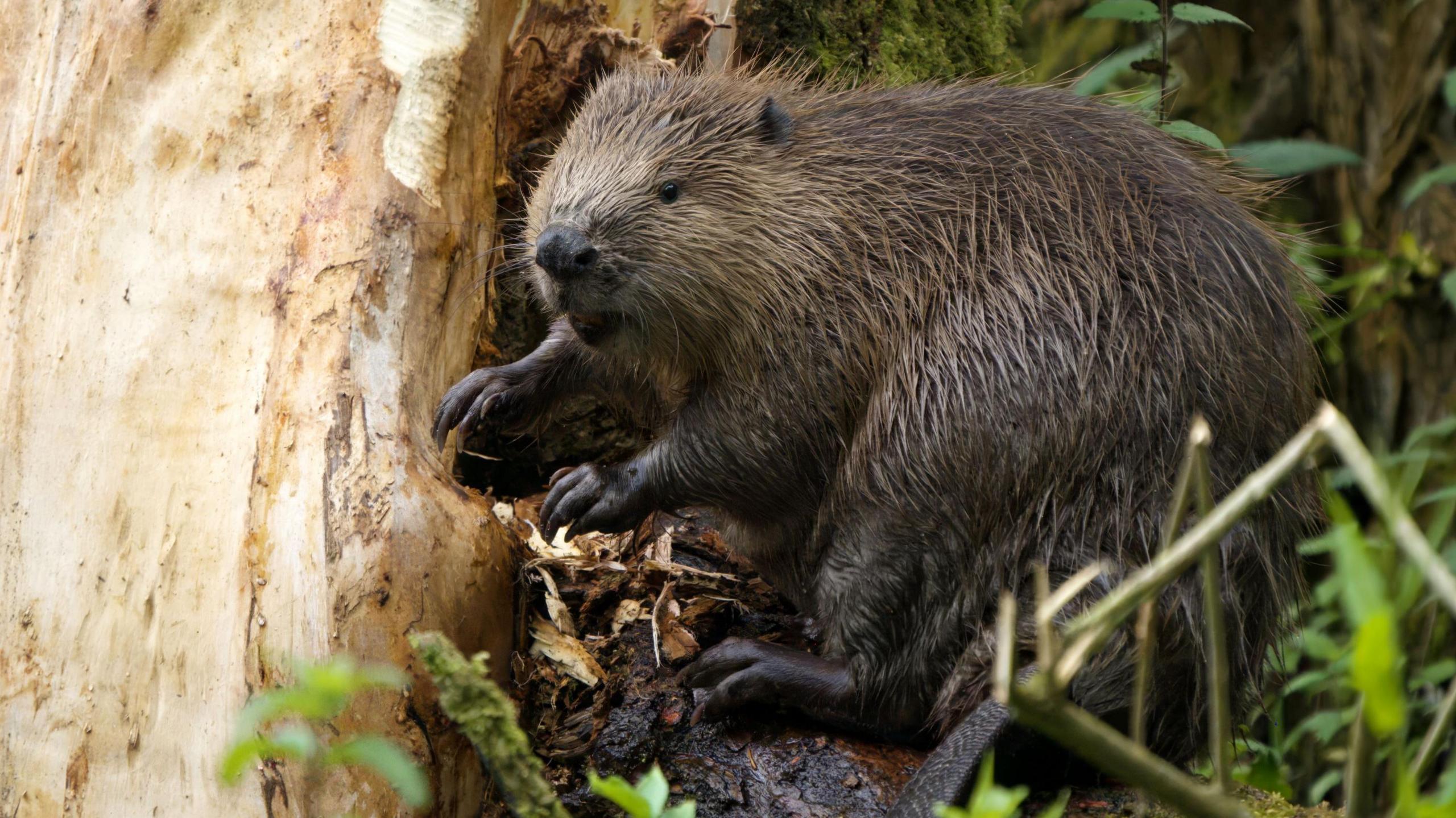
A beaver family has had free rein of 10 acres (four hectares) of stream and woodland for the past five years
- Published
The reintroduction of beavers has helped reduce the impact of flooding and drought in a county trying to conserve water, the Environment Agency said.
In 2019, the Spains Hall Estate in Essex worked with the agency to release the first pair of beavers in East Anglia for more than 400 years.
Since then, the family has grown to 11 and built nine dams on a 10-acre (four hectare) site, which has a stream surrounded by trees. It is estimated the dams are storing three million litres of water (65,9908 gallons) in various ponds.
Matt Butcher, from the Environment Agency, said it had shown "nature-based solutions" could be used to tackle challenges.
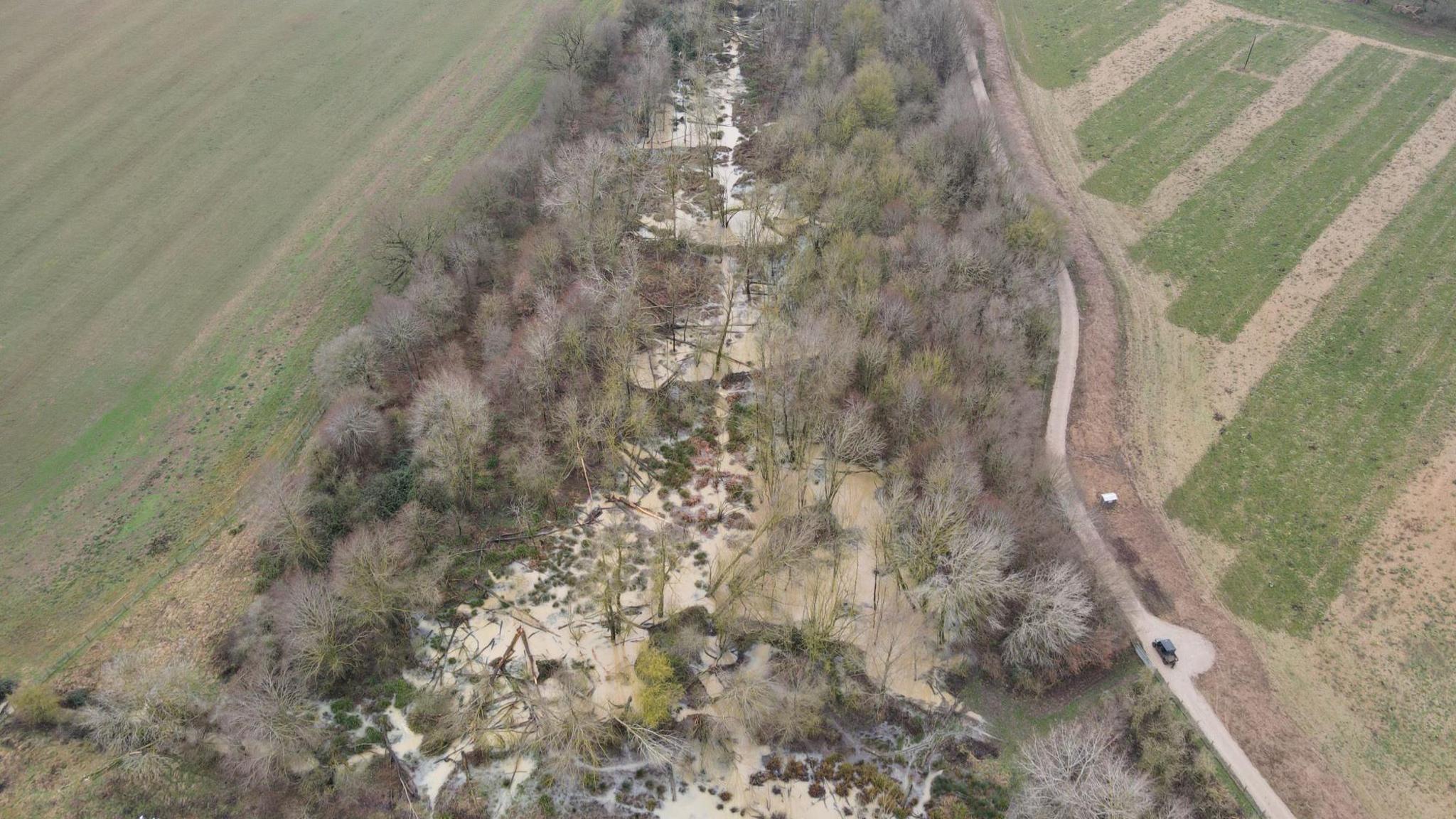
An aerial view of the beaver habitat at Spains Hall Estate
Essex County Council revealed its water strategy on Wednesday, in a bid to tackle concerns the county does not have enough water to meet demand.
The strategy highlighted how water was already being conserved through the natural flood management provided by the beavers.
Data from King's College London also showed the way water flowed across the area had changed.
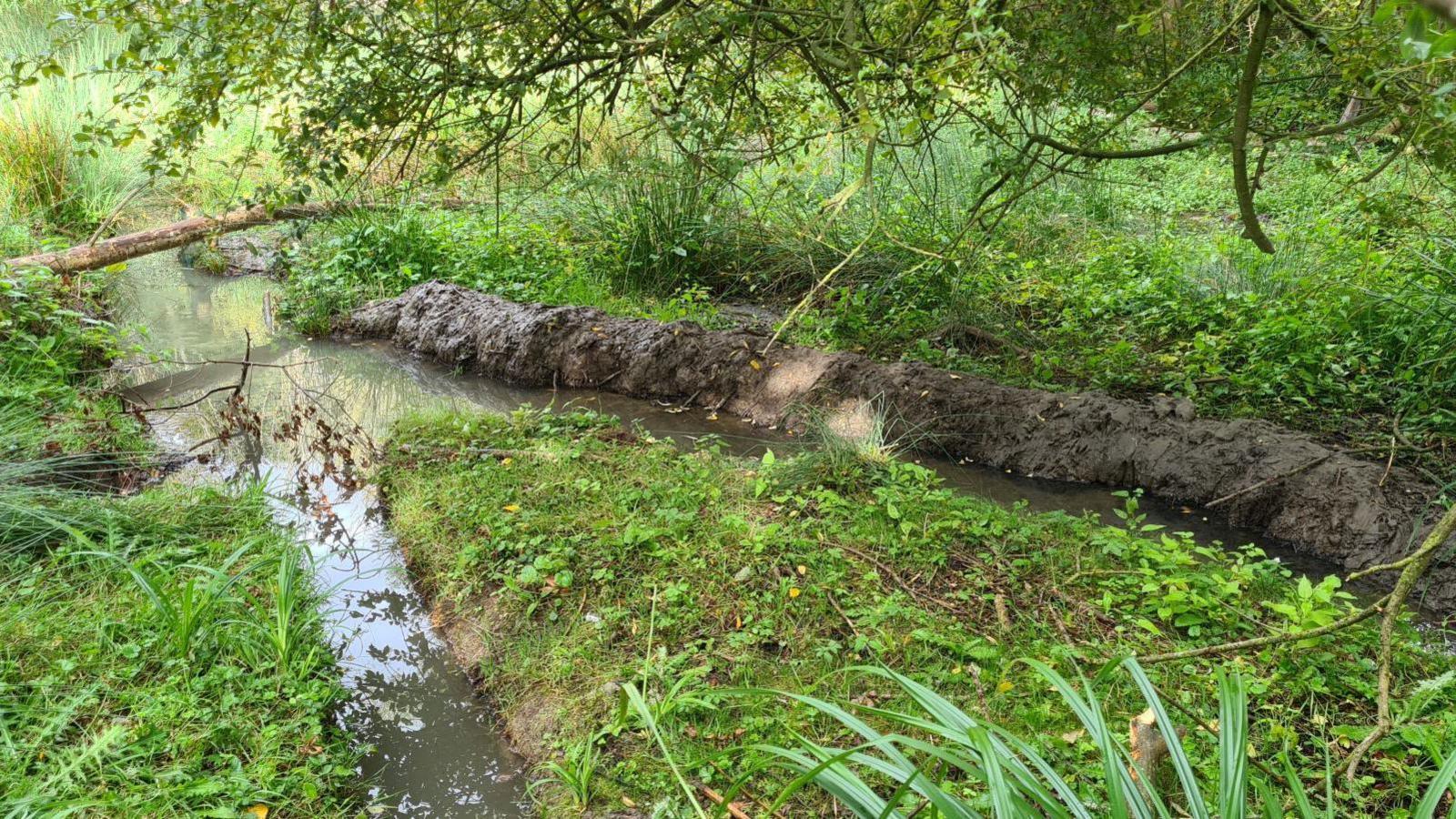
The beavers have created nine dams at Spains Hall Estate, near Braintree
Over the years the beavers have continued to build bigger dams, which has meant storm water has started to flow downstream more slowly - helping alleviate low river levels in the summer.
Archie Ruggles-Brise, estate manager, said: "Locally there is widespread support for the beavers and their work, with the community really taking them to their heart."
Mr Butcher added: "We are delighted that the beavers have thrived and improved the landscape."
Find BBC News: East of England on Facebook, external, Instagram, external and X, external. If you have a story for us, email eastofenglandnews@bbc.co.uk, external or get in touch via WhatsApp on 0800 169 1830
Related topics
- Published20 March 2024

- Published22 August 2023
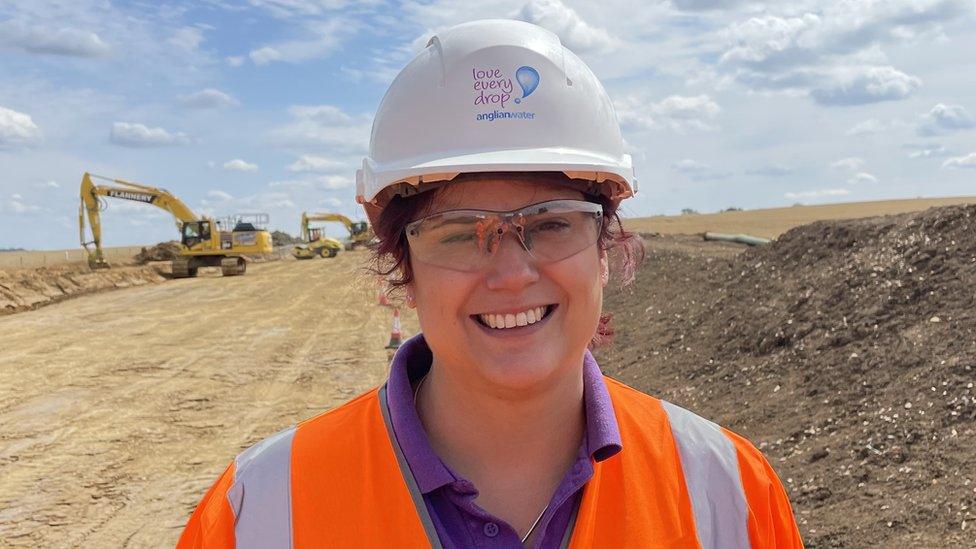
- Published15 March 2024
